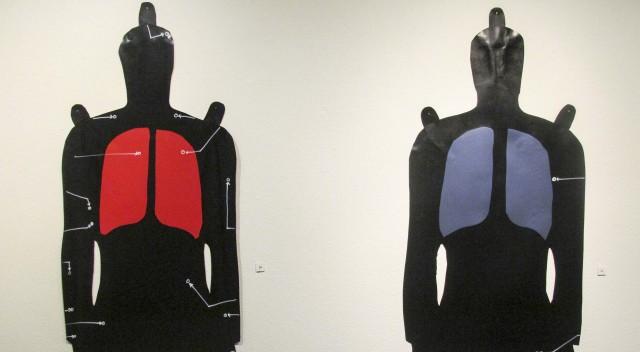By Michelle Winters/reporter
The ability to recognize red flags is essential, South Campus students learned during The Balancing Act workshop Feb. 10.
Subtitled “Living Level in a Rollercoaster World,” the seminar aimed at teaching students how to maintain equanimity in this fast-paced, high-tech, chaotic world.
“People can feel when areas of their life are not in balance,” counselor Michele Mastick said.
Whether students realize it or not, imbalance negatively affects academic performance and quality of life. Allowing any area of life to get out of control can manifest itself in many ways, Mastick said.
Physical warning signs can be a change in appetite or weight, the inability to focus and insomnia or excessive sleepiness. Some people may experience pain symptoms like frequent stomachaches, headaches or chest pain.
“People tend to ignore these signs, but the body is trying to tell you that you’re out of balance,” she said.
Emotions such as sadness, worry, anger or loss of enjoyment may become difficult to manage. While constant imbalance may be normal to some, Mastick said it’s not healthy.
Strained or no relationships, financial hardships and poor time management are also red flags. Mastick urged students to be brutally honest when conducting a self-evaluation. Students often overload themselves with responsibilities because they have trouble saying no, she said. Others are habitually late because they don’t plan for the unexpected.
“The key to keeping life in balance is knowing when you’ve lost it,” she said.
Balance is not something people find. It’s something they create. The intent of time management isn’t so students can add more responsibilities to their schedule, Mastick said. They need to prioritize and remove unnecessary tasks to do what they need to do.
Part of the problem, she said, is people spend a majority of their time with electronic devices. They watch television, play video games and download interactive apps on their iPads, computers or smartphones. Americans spend 11 or more hours of their day on electronic media, according to a Nielsen report.
“People have fewer real friends and more electronic friends,” she said.
That’s because they spend more time scrolling for posts on Facebook than they do developing face-to-face relationships, Mastick said. Research says people are lonelier now than they were before social media.
“That could be because of the lack of depth in the relationships they have,” she said.
Mastick said she worries Facebook is killing meaningful relationships. She warned that their personal lives will suffer if social interaction consists solely of liking electronic friends’ posts rather than making real connections. And if students spend more time on Facebook, Twitter or Instagram than they do studying, they’re not likely to achieve academic success.
“If you’ve been studying hard and feel like you deserve a break, set a 15-minute timer before you get on Facebook,” she said.
Setting limits will help prevent students from losing track of time.
Killiane Kramer, a transfer student from Texas Tech, spent seven semesters in Lubbock taking basics and trying to choose a major she felt passionate about. Because of restaurant experience, she thought restaurant and hotel management seemed the obvious choice but soon became disinterested.
“I decided I didn’t want to do that for the rest of my life,” she said.
Now a business administration major, she is pleased with her choice but faces the stress of changing majors, such as prolonging graduation and increasing expenses. She said personal struggles, family illnesses and a bad relationship have all contributed to her current status of academic probation. Kramer attended the workshop to fulfill a mandatory requirement of TCC’s academic retention program.
“I’m here because I have to be,” she said.
Kramer admits she picked this workshop from the list of options because it seemed to be the lesser of evils. However, her attendance was beneficial in more ways than one. She said Mastick’s discussion on the physical symptoms of imbalance provided insight about how stress was affecting her own state of health.
“Sometimes I’m so stressed out that I start throwing up for no reason,” she said.
Kramer believes learning how to identify and remove stressors will help her begin to restore balance in her life. She said she attempts to fit too many tasks into her day and doesn’t have time to complete them all.
“I’m going to have to work on saying no for a while,” she said. “The plan is not to fit more in. I need to take things out. That’s great advice.”
Mastick said many TCC students in their late teens through early 70s would have benefited from attending the session, and she would like to see more students take advantage of the assistance and retention workshops the counseling departments offer.
“I just wish more students would’ve come,” she said.
Students need to be intentional about the life they want to live and what they’re willing to do to get there, Mastick said.
“We [counseling centers] want to do whatever we can to ensure their success,” she said. “If we can help just one student achieve success, it’s worth it.”
























![Untitled [House], Barry Anderson](https://collegian.tccd.edu/wp-content/uploads/2016/02/House-640x480.jpg)

